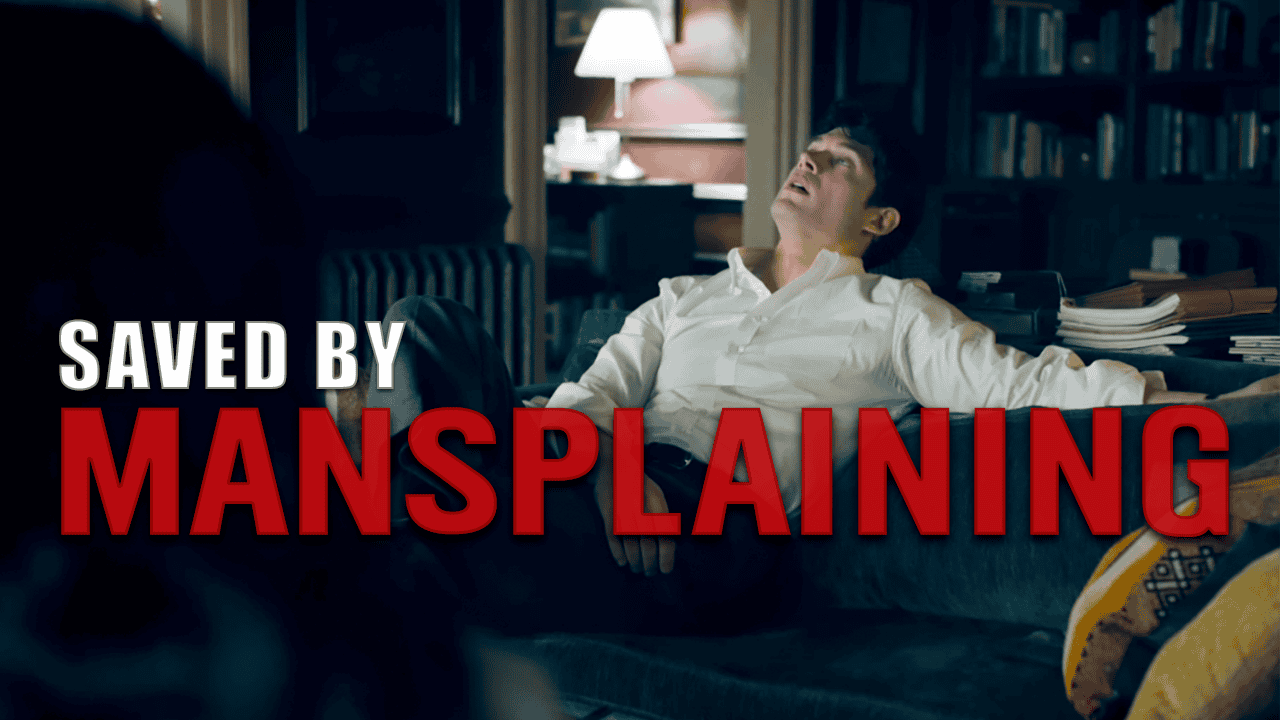By Joshua Tyler
| Published
After years of declining attendance, something big has started happening in theaters this summer. People seem to be going back to the movies, and I think we have mansplaining to thank for it.
For years now, the standard formula for modern storytelling has been to set up a situation in which alpha male characters get corrected and put in their place, usually by a woman. If you’ve seen a movie or television show recently, then you know what I’m talking about.

If you somehow don’t know, pick up your remote and watch anything with actor Pedro Pascal in it. He’s made an entire career out of toplining these kinds of stories. You can count on him doing it again in the upcoming Fantastic Four movie, which plot leaks suggest centers around his Reed Richards character stepping aside so that his wife can become the team’s leader.
This formula, represented by Pedro Pascal, would be tiresome by now, even if it had been executed well. Most of the time, it hasn’t been.

Usually, in these stories, the Pedro Pascal character is right about everything, gets told off by someone who is wrong about everything, and then everyone dies or fails because Pedro Pascal apologizes and backs down. Then, whatever you’re watching treats this as a win.
That used to be called bad writing. These days, it’s called progressive. I don’t care about the politics of it at all, but I do care about logical plot progression and character development. That hasn’t been happening, but this year, the two biggest movies of the summer that don’t have dinosaurs in them tried something different.
Two of the summer’s biggest movies feature strong male characters who stand up for themselves. They stand up for themselves not because they like mansplaining, but because they’re right.

Brad Pitt’s washed-up race car driver in F1, Sonny Hayes, is confident, smart, and absolutely right about everything when it comes to racing. Though he’s polite and deferential, he never backs down.
As a result of being right and a man, he spends almost the entire movie being called a jerk. That’s expected. That’s what always happens in modern movies.
Except, unlike narrative Pedro Pascals, Sonny Hayes doesn’t care. He smiles and goes on doing the right thing, dragging all the angry finger-waggers along with him. He doesn’t care how often he’s insulted.

Sonny doesn’t care about being shamed. He knows he’s right, and so he keeps doing that. It works. He wins.
All the entitled know-nothings around Sonny keep right on calling him a jerk, but now they’re winning, and it starts to take on a different tone. He’s not just a jerk, now he’s their jerk, and they love him for it.
Superman is a different kind of jerk. In James Gunn’s movie, he saves a bunch of lives, and instead of thanking him for it, the whole world starts moaning that he didn’t follow proper procedures.

Things escalate when his girlfriend, Lois Lane, starts having a go at him. This is the spot where Pedro Pascal would have caved, begged her for forgiveness, and thrown himself on the sacrificial altar of toxic masculinity.
Superman does none of that. Instead, he goes full masculine. He tells Lois she’s wrong. Tells her none of that matters, because he cares about the big picture. He refuses to stop doing what he’s doing because he’s saving lives, all lives, and that’s what matters.
Things get worse after that. Lex Luthor turns the whole world against him, and everyone wants Superman to apologize and give in.

Clark Kent refuses to become Pedro Pascal. Eventually, his steadfastness pays off. Superman saves the lives of innocents, his girlfriend respects him for sticking to his convictions, and the world admits he was right and they were wrong.
Both movies are a triumph of traditionally masculine energy over anti-masculine forces trying to drag them down with technicalities. They’re victories over red tape and fear.
Both movies are about men being men. That means focusing on the big picture and refusing to allow themselves to be stopped because they’re right and everyone else is wrong.

These are the kinds of universal, common-sense, rationally constructed stories people are interested in. They’ve always been interested in them; it’s just that Hollywood has refused to let us have them for the last few years or so.
That’s why people are showing up in large numbers for it now, while at the same time, almost no one is watching Pedro Pascal’s latest male apology for his existence in the second season of The Last of Us.
Fantastic Four will probably do big numbers, with the marketing push it’s gotten baked in. It actually looks fresh and new, unlike every other Marvel product. However, movies like Superman and F1 are likely to have the biggest, lasting impact on the future of film and culture.
